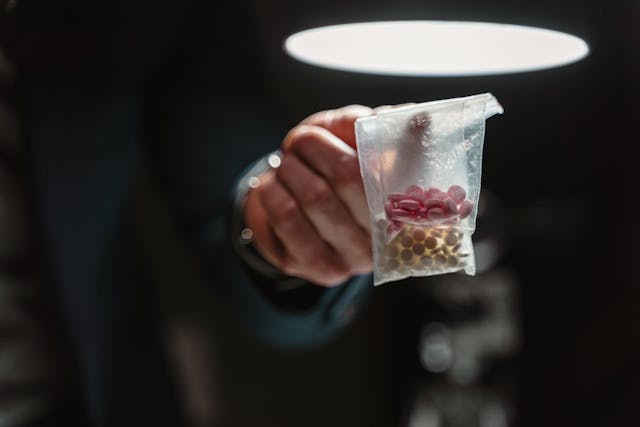
Table of Contents
Drug addiction more accurately termed a substance use disorder (SUD), is a complicated medical condition distinguished by compulsive drug use despite negative consequences. Despite the crisis we are experiencing, what further worsens the situation is the ongoing stigma around it.
The negative association and prejudice with substance abuse are often a reason why most people are either too afraid to seek help or avoid it altogether, thinking it’s not worth the time. However, if you use drugs and want to get addiction treatment, it is time to break down the barriers before your life gets worse.
We will delve into the multifaceted issue of addiction stigma, exploring its harmful effects, its root causes, and, most importantly, strategies to dismantle it.
The Perils of Stigma Surrounding Drug Addiction
The stigma around drug problems often manifests in a variety of ways. People developing an addiction problem are often dehumanized with derogatory terms like “junkie” and “addict,” which makes can further worsen the situation and lead to further drug misuse and addiction.
Not just that, struggling with addiction also contributes to an unstable life. However, despite everything, the stigma surrounding the subject often avoids discussion surrounding the science of addiction and understanding the reasons behind the development of drug addiction.
Some of the consequences of the stigma around addiction may include:
Discourage help-seeking for drug addiction
Let’s say that you are struggling with alcohol and drug addiction, and you are set to get the help that you need. However, the stigma often leads to fear of judgment and discrimination in the minds of people, further enhancing the risk for addiction and preventing people from addiction recovery in the future.
Fuel shame and isolation from drug abuse
The stigma surrounding substance abuse treatment and addiction often ignites feelings of shame in individuals, making it difficult for them to get the help that they need without feeling guilty. Addiction affects people mentally, so when there’s a stigma on top of that, the self-esteem of individuals often takes a hit. It prevents drug users from seeking help and social support, which is a crucial element of recovery from drug dependence.
Exacerbate mental health issues
Believe it or not, addiction affects your brain directly. And, when the subject is further stigmatized, it becomes pretty much impossible for individuals to take the first step to overcoming drug abuse. What this does is further worsen their mental health in the process. Drug abuse and addiction can contribute to complications like depression and anxiety.
The impact of stigma transcends the individual. It discourages public investment in treatment programs and research as well.

Where Does Stigma Around Drug Use and Addiction Come From?
The easiest way to dismantle the stigma surrounding addiction is by understanding drug use and addiction and the science behind it. From the type of drug to the risk of drug addiction in certain people, multiple factors deserve to be discussed and highlighted.
Here’s a breakdown of the reasons why there’s so much stigma:
Misinformation surrounding substance use disorder and term addiction
If there’s one thing that’s worsening the possibilities and signs of addiction is the prevailing misinformation. Most individuals aren’t even aware of the reasons that contribute to people’s reliance on alcohol and illicit drugs. Also, the lack of information about drug use and health contributes to negative ideation of the situation, further worsening things.
Moral judgment during addiction recovery and drug craving
Addiction is often seen as a personal failure rather than a medical condition. This misconception ignores the compulsive nature of addiction and the difficulty of quitting without professional help. So, it isn’t surprising that people struggling with mental health and addiction often find it hard to find relevant social support and health during their treatment of substance use.
Media portrayals of drug abuse and addiction and use of drugs
People struggling with addiction are often portrayed in a negative light on television and in movies. Drug use patterns are misrepresented, which further increases the risk of addiction. Instead of showcasing that the use and addiction are preventable, the media often portrays the addiction to opioids in a misconstrued way. This makes the term addiction and recovery a very unapproachable concept among people who have developed drug dependence and addiction.
What are the Strategies for Change for Eliminating Stigma around Substance Use Disorder?
Drug overdose should never be anyone’s fate, irrespective of what led to the alcohol and drug addiction in the individual. Getting timely treatment for drug addiction is the first step towards eradicating the stigma surrounding the subject.
Sometimes, the best thing that you can do for someone with a history of repeated drug use is to offer them support during these hard times.
Following are a few elements that can drive change in people’s lives with addiction:
Empathy to help prevent drug overdose and Encourage addiction treatment
People who are associated with drug use and are struggling with repeated use of a drug often seek empathy from the people around them. It doesn’t have to be something extensive, but the language with which you speak to people with a history of drug abuse matters. Empathy and kindness can go a long way. Drug addiction is a chronic ailment, so treating the patients as such helps to reduce the greater risk of drug abuse in the future.
Education and awareness on steps to overcoming drug abuse
One of the reasons why there is a stigma surrounding drug abuse is due to the lack of information about what leads to addiction and why people take the drug. Get your knowledge from official sources like the National Institute on Drug Abuse.
Besides poor life decisions, drug abuse can be a genetic anomaly, can be triggered via social situations, or could be some other reason why people form a reliance on alcohol and other drug. Sober Centre is dedicated to bringing awareness surrounding the concepts to help educate people to overcome the complexities more proactively.
Promoting the first step to overcoming drug abuse
The media often highlights discussions surrounding drug abuse and drug overdose. However, the most effective way to eradicate drug abuse is by prioritizing discussions about recovery and addiction medicine. Sharing stories of individuals who have overcome addiction challenges the perception of addiction as a dead end.
How To Make a Difference Around Drug Misuse and Addiction?
The fight against stigma doesn’t require grand gestures. If you are struggling with alcohol or other drug abuse issues and want to make a difference in your life, the key is to make small changes in your attitude and approach to drug addiction.
Here’s a four-step guide to reducing stigma around the history of addiction and drug addiction treatment:
- Challenge stereotypes surrounding addiction risk
- Educate yourself and others about the symptoms of drug abuse
- Offering support to prevent the development of addiction
- Advocate for change to reduce the risk of drug use
We can create a climate of understanding and support by taking these steps.
Conclusion
Your struggles with drug abuse are further worsened when you have the ongoing stigma surrounding the condition and its treatment and recovery. The risk for drug use and risk factors can be managed when you have access to the right resources. The easiest way to overcome the effects of the drug is to ensure that you are focusing on surrounding yourself with people who support and back you up instead of stigmatizing your struggles.










